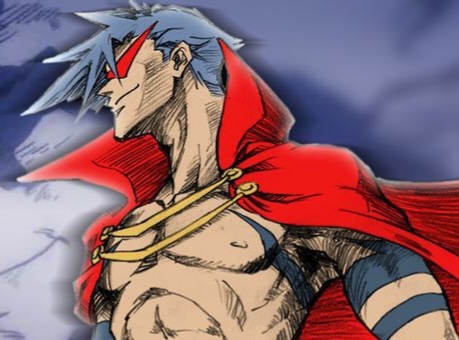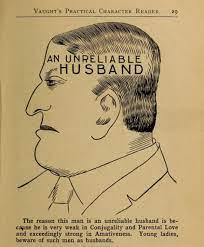from 2012
tags: gorbachev economic model hyper profits consumption
DAMN BRO YOU DONT SAY? GEE, WONDER WHAT FUCKING HAPPENED TO BIGGEST ALTERNATIVE MODEL IN THE 20TH CENTURY

What happened to the old economic model, Gorby? WHAT HAPPENED TO THE OLD ECONOMIC MODEL?

even bigger piece of shit than i imagined
“we need neoliberalism without the profits”
Sold the collective hopes of Humanity for a pizza smdh
Not even good pizza either, could’ve gotten a way better deal from Italy or even Spain
always hated Pizza Hut pizza… the sauce was a thick sugary pepper tomato mush and they used wayyyy too much of it
pizza hut garlic dip slaps tho, I basc use the subpar pizza as a vessel for the garlic daemons
Granted, we still have China at least but he still fucked a lot of people over and greatly reduced lifespans in Eastern Europe/North and West Asia.
 That is not based on hyper profits and hyper consumption, right?
That is not based on hyper profits and hyper consumption, right?



 pizza hurt
pizza hurt
What a dipshit
I was reading this thing from a cpusa guy who was around for the fall and he said that gorbachev was actually one of the last real leninists in the cpsu at the time. Wonder what gave him that impression, and also i just think its a far more interesting story than him being a opportunist moron
that gorbachev was actually one of the last real leninists in the cpsu at the time.
Left-libs don’t demonize Lenin nearly as much as Stalin, so in this instance they’re trying to eulogize by drawing connections to a more respected Marxist figure
I think part of it is that Gorby thought he was securing a future for communism. He was an idiot, but plenty within the party couldn’t care less at that point.
The most in-depth analysis I’ve seen of the Gorbachev era was basically that Gorbachev himself was basically entirely uncreative and indecisive, while otherwise being a fairly competent and likeable bureaucrat. If someone was telling him what to do he would do it well, but his own ideas were half baked and disastrous whenever he tried to enact them. So he started listening to a diplomat who’d been living overseas in IIRC Canada for quite a while and on his advice took a bunch of anticommunists into his circle and from there just started enacting the bullshit they were selling him as “doing social democracy from the left.”
Even that would have been survivable for the Soviets if it didn’t also go along with putting anticommunist extremists in charge of state media outfits and agreeing to plans to isolate and undermine local branches of the CPSU when they started doing open, competitive elections which let black market syndicates sweep because they were able to campaign and work together while the CPSU candidates were isolated and hamstringed, and all that laid the groundwork for Yeltsin’s coup.
Not that it can be solely blamed on Gorbachev and his bloc, because there’s no way all this could have happened without a bunch of other longstanding failures of political education. Like the educated class in the USSR knew that the equivalent class in western countries had significantly more consumer goods, but they didn’t understand that that came from imperial plunder and superexploitation rather than some sort of magical “efficiency” of market competition, so they were shocked and confused when free market reforms crashed the economy and not only reduced their access to consumer goods but also all the basic necessities of life that they’d previously been taking for granted. Another point is that the counter-coup by Soviet Officials would have succeeded except they stopped in the middle of it to look for Gorbachev’s approval and he just waffled indecisively until it all fell apart - the fact that they felt they needed his approval to save the USSR was another symptom of this decay and failure of political education, because even though they knew what they had to do they were unwilling to see it through without reassurance from someone they shouldn’t have been trusting at all at that point.
longstanding failures of political education. Like the educated class in the USSR knew that the equivalent class in western countries had significantly more consumer goods, but they didn’t understand that that came from imperial plunder and superexploitation rather than some sort of magical “efficiency” of market competition, so they were shocked and confused when free market reforms crashed the economy and not only reduced their access to consumer goods but also all the basic necessities of life
This reminds me of when East Germany voted for reunification under a president from West Germany. Like, PLEASE you had to know what would happen if you did that. That wall was built because you knew that they would do anything to destroy you.
who was that diplomat and why did gorby entrust the USSR to their advice?
Sorry, it took me a while to find a new pdf of the book I’d read this in (Socialism Betrayed: Behind the Collapse of the Soviet Union which despite the sort-of clickbait-y title is actually a very dry play-by-play about the Soviet economy, the background of various polices and officials, and a blow-by-blow account of what Soviet polices were over the course of the 80s and who was saying what about them) and then find the bit talking about this to refresh my memory. It was Alexander Yakovlev, the Soviet ambassador to Canada from 1973-83. Gorbachev apparently met him in 1983 and subsequently backed him for appointment to a series of prestigious offices and ultimately to head of Agitprop, where he worked to nominally decentralize the institution’s authority out to a bunch of more local editors that he himself had appointed or otherwise backed for their offices, while in practice wielding that authority on behalf of anticommunists and against critics of Gorbachev.
I will revise my earlier statement and say that Yakovlev wasn’t the only cause, though. He was one particularly odious voice in Gorbachev’s ear but clearly not the only one he brought into his inner circle. Part of my mistake seems to be that because all of this was happening behind closed doors and off the record the only source for a lot of the insights into what Gorbachev was allegedly thinking come from Yakovlev himself claiming to have been involved in this or that decision.
Gorbachump



















